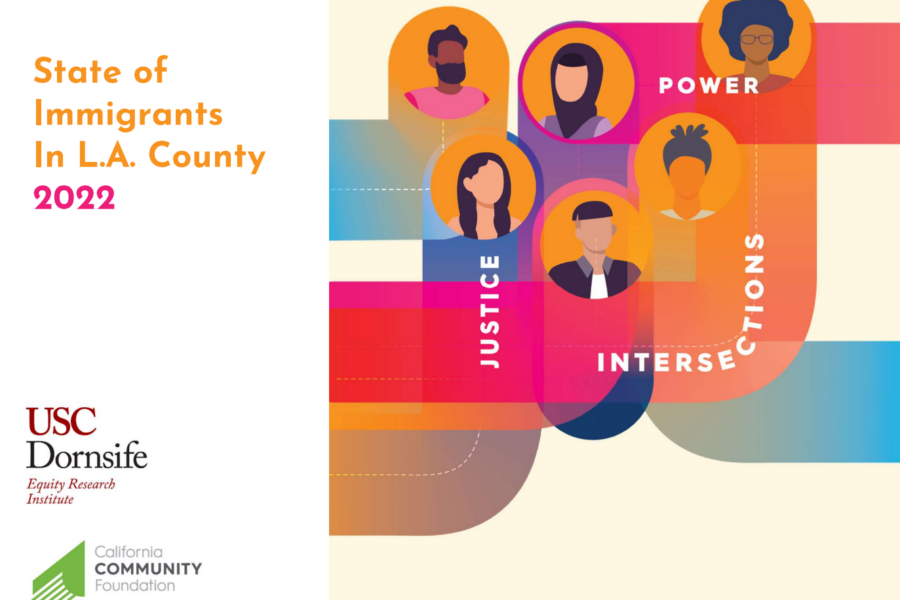Funded by the California Community Foundation
ERI Project Team: Carolina Otero, Cynthia Moreno, Emma Yudelevitch, Eunice Velarde, Fernando Moreno, Gladys Malibiran, Jamie Flores, Joanna Lee, Lauren Perez, Manuel Pastor, Rhonda Ortiz, Sabrina Kim, Thai Le, Vanessa Carter Fahnestock

Immigrants are a central part of the Los Angeles community, landscape, and overall functioning of the county—over 1 in 3 Angelenos are immigrants or 3.6 million. Although “immigrant” is helpful in describing those born outside of the U.S., in this case, the immigrant experience is far from uniform as it is shaped by race, class, legal status, etc. In our third consecutive year of the State of Immigrants in Los Angeles County (SOILA) 2022 report, we highlight the standing of immigrants in L.A. as the effects of the pandemic continue to be felt, including in the context of major, system-altering changes stemming from the COVID-19 pandemic.
As the recovery from the peak of the pandemic continues, what does an equitable recovery look like for immigrants? How can we ensure immigrants are not left behind? First and foremost, we recognize that white supremacy is the framework that sustains the immigration system and therefore we must make a commitment to racial justice, which is a commitment to immigrants. Further, as the report shows, legal status is a significant barrier to the civic and economic inclusion of immigrants but it also greatly impacts their well-being. Another takeaway is the barriers that stand in the way of immigrants and prevents their inclusion also affect their families, friends, communities, and ultimately, all Angelenos.
Our 2022 report continues to build on the previous two SOILA reports and attempts to shed light on pressing facets of immigrant life. Moreover, evolving from our prior focus on immigrant integration, and in better alignment with community organizers and immigrant communities, this year we use “immigrant inclusion” as our analytical lens. This approach emphasizes the role of immigrants in building power and creating their own life narratives and stresses the linkage between the barriers to full inclusion immigrants navigate and broader struggles for racial and economic justice.




